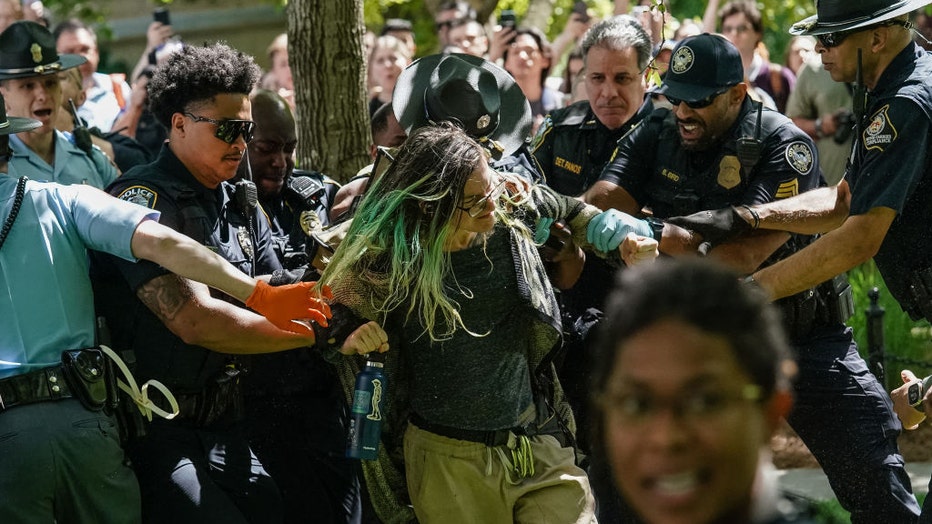Emory protest: University bans overnight camping after pro-Palestine rallies
APD body cam footage shows Emory protest chaos
Atlanta police have released hours of body camera footage from the department's clash with pro-Palestine protesters on the campus of Emory University on April 25. One clip shows a protester ripping police tape before officers moved in to arrest her.
ATLANTA - Emory University has made changes to its longstanding Open Expression Policy following the pro-Palestine protests that ended with dozens of arrests on campus last semester.
The new policy, which the university announced on Aug. 27, bans student, staff, and faculty members from camping and protests on campus between the hours of midnight and 7 a.m.
The change also prohibits all encampments on the Atlanta university's property as well as any building occupations.
The policy adjustments come months after students and others set up an encampment on the school's campus to call for a ceasefire in the Israel-Hamas war.
Emory officials said the protesters who had set up an encampment on April 25 were trespassing on private property and refused to leave, leading the school to ask the Atlanta Police Department and Georgia State Patrol for assistance.

Police officers arrest a demonstrator during a pro-Palestinian protest against the war in Gaza at Emory University on April 25, 2024, in Atlanta. (Photo by Elijah Nouvelage / AFP) (Photo by ELIJAH NOUVELAGE/AFP via Getty Images)
During the chaos, police arrested 28 people, including 20 members of the Emory community. FOX 5 Atlanta cameras were rolling when at least one person arrested was shot with a Taser by Georgia State Patrol Troopers.
MORE: Emory University protests: Atlanta police release body camera footage of arrests
In the days following the arrest, Emory President Gregory L. Fenves announced that the university would conduct a review of the events surrounding the protests to "develop recommendations to improve how we keep our community safe."
"Let me be clear: I am devastated that members of our community were caught up in law enforcement activity enforcing the removal of the encampment. The videos of these interactions are deeply distressing. I take Thursday’s events very seriously and we are launching a thorough review of them so that we can develop recommendations to improve how we keep our community safe," Fenves wrote.
Since the protests, a majority of both Emory's undergraduate students and the faculty senate for Emory's College of Arts and Science have voted in favor of a no-confidence referendum against Fenves.
RELATED STORIES
- Emory University 2024 commencement held without major disruption
- Emory protests: Students pass 'no confidence' vote against university president
- Emory University faculty express ‘No Confidence’ in president after protest clash
- Emory University under federal investigation over alleged anti-Muslim discrimination
Faculty members told The Guardian that the announcement of the rule changes by Fenves was a violation of the school's shared governance policy and say they have urged him to delay implementing the rules until hearing input from the university senate.

